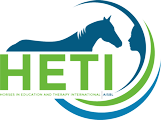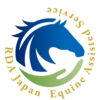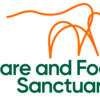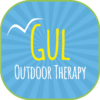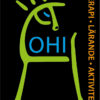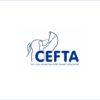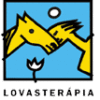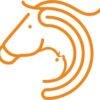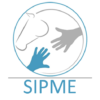HETI members directory
Riding for the Disabled Association Ltd
Address
RDA c/o Tuen Mun Public Riding School, Lot 45 Lung Mun Road, Tuen Mun
Contact Person
Apple Wong
Email
Website
http://www.rda.org.hk
Specialization
Theraputic Riding
Services Offered
Theraputic Riding
Language courses are given in
Cantonese and English
Internships offered
no
RDA JAPAN
Address
1-58-9-206,Matsubara, Setagaya-ku, Tokyo 156-0041 Japan
Contact Person
kiginu Nakata
Email
Website
http://www.rdajapan.or.jp
Specialization
Therapeutic Riding
Training and education programs
Insteructer training program
Language courses are given in
Japanese
Internships offered
yes
Hest og Helse
Address
Jønsbergvegen 430, 2335 Stange
Contact Person
Anette Isaksen
Email
Website
http://www.hestoghelse.no
Specialization
Education and networking in horse assisted interventions
Language courses are given in
Norwegian
Internships offered
no
Mare and Foal Sanctuary
Address
Coombe Park Equestrian and Education Centre
Contact Person
Dawn Neil, Head of Education and Equine Assisted Services, and Rhodri Samuel Chief Executive
Email
Website
https://www.mareandfoal.org
Specialization
Rescue, rehabilitation and rehoming of horses and ponies in need of welfare interventions and sanctuary
Services Offered
Education and therapeutic programs
Training and education programs
Equine Assisted Learning, Equine Assisted Wellbeing and Equine Assisted Activity programmes
Language courses are given in
English
Internships offered
yes
Riding for the Disabled Assoc. Australia Ltd
Address
3/168 Henley Beach Road, Torrensville, SA, 5031, AUSTRALIA
Contact Person
Justin Dent
Email
Website
http://www.rda.org.au/default-landing.aspx
Specialization
Equestrian activities for people with disabilities
Services Offered
Riding, Carriage Driving, Vaulting
Language courses are given in
English
Internships offered
no
God Unlimited Outdoor Therapy
Address
The Bustard
Contact Person
James Dwyer
Email
Specialization
Equine and Outdoor Therapy for people of all ages
Services Offered
Gul provides activities with the aim of improving well being, specifically Gul offers Equine assisted learning, riding and ground based activities, activities in its woodland and garden settings and accommodation for long term and short term users of the charity. Services are primarily offered for school age young people but are available for all ages.
Training and education programs
Gul offers coaching in ABRS rosettes and equitation tests, apprenticeships and supports other organisations to offer other educational courses such as BTECs. In 2020 Gul will be working with partners to offer accredited training in Equine Facilitated provision.
Language courses are given in
English
Internships offered
yes
Professional Association of Therapeutic Horsemanship International (PATH Intl.)
Address
PO BOx 33150, Denver, Colorado 80233, USA
Contact Person
Kathy Alm
Email
Website
http://www.pathintl.org
Specialization
Credentialing and Education
Services Offered
Credentialing and education
Training and education programs
Yes
Language courses are given in
English
Internships offered
yes
NPO Piskari
Address
Baji Equestrian Park, 2-1-1, Kamiyoga,Setagaya-ku, Tokyo, 158-0098 Japan
Contact Person
Naomi Esashi
Email
Website
https://piskari-tokyo.or.jp/
Specialization
Horse assisted Therapy / resarch
Services Offered
Horse assisted Therapy for handicapped children and elderly people
Training and education programs
for Japanese only
Internships offered
yes
Korea Association of Therapeutic Horsemanship
Address
420ho Dongtan Corner One Smart Tower, 131, Dongtanyeongcheon-ro, Hwaseong-si, Gyeonggi-do, Republic of Korea
Contact Person
Amy Lee
Email
Website
https://www.kath.kr/
Specialization
Equine Assisted Service
Internships offered
no
The Finnish Association of Equine Facilitated Therapies
Address
Välitalontie 11, 87850 Paltaniemi, Finland
Contact Person
Sanna Mattila-Rautiainen
Email
Website
Https://suomenratsastusterapeutit.fi
Specialization
Equine facilitated therapies, education, negotiation with stakeholders, publisher
Services Offered
Education on EFT, Project management, Publishing, member services
Training and education programs
Equine facilitated therapy
Language courses are given in
Finnish
Internships offered
no
OHI, Organisationen för Hästunderstödda Insatser
Address
Västbjörka, Kvarngatu 3, 795 95 Vikarbyn, Sweden
Contact Person
Marie Gudmundsson
Email
Website
https://ohi.nu
Specialization
Equine assisted interventions
Services Offered
News about EAI information, education, OHI-certificat for professionals
Training and education programs
Yes
Language courses are given in
swedish, english
Internships offered
yes
The Czech Equine Facilitated Therapy Association (CEFTA)
Address
Zemědělská 1, Brno, 613 00, Czech Republic
Contact Person
Monika Kohoutová
Email
Website
http://educationinhippotherapy.com/
Specialization
Equine Facilitated Physiotherapy, Occupataional Therapy, Psychoterapy, Learning and Para-equestrian sport
Services Offered
Umbrella association for 61 centres and 70 individuals. We offer the Center Accreditation Program, the Therapy Horse Certification Program. We organise and conduct: conferences, workshops, internships and specialised courses, consultations, publishing methodologies and industry standards for each EFT disciplines.
Training and education programs
Equine Facilitated Physiotherapy, Occupational Therapy, Psychotherapy and Learning - combination e-learning and practical week
Language courses are given in
English, Czech
Internships offered
yes
Canadian Therapeutic Riding Association
Address
5420 Highway 6 N., RR#5, Guelph, ON., N1H 6J2
Email
Website
https://cantra.ca/en/
Specialization
Therapeutic Riding, Hippotherapy, Equine Facilitated Wellnes
Training and education programs
Instructor Certification Program, Centre Accreditation.
Language courses are given in
English/French
Internships offered
yes
Magyar Lovasterápia Szövetség Alapítvány/Hungarian Riding for the Disabled Federation
Address
1066 Budapest, Teréz krt. 24. Hungary
Contact Person
Dr. Peter Edvi
Email
Website
http://www.lovasterapia.hu/
Specialization
Education and training of equine assisted therapy (EAT) professionals: • Developing norms, rules, adaption of international standards; • Establishing international relations; • Inviting foreign patients, guests, lecturers, teachers to Hungary; • Organizing trainings and conferences, editing and publishing curriculums and publications; • Improving working conditions of professionals and institutions, as well as the professional reputation of EAT therapists; • Establishing and supporting educational centres for EAT; • Promoting of all horse riding related sports through the assistance of the Federation; • Organizing competition system for disabled riders, establishing the conditions for Para Equestrian Sport.
Services Offered
All 3 parts of EAT are recommended by medical doctors (neurologists). • Hippotherapy Hippotherapy is a neurophysiology based physiotherapic treatment, recommended by a physician. Mainly used in health care or in special education as a supplementary customized therapy method, used by physiotherapists, somato-pedagogues (special education teachers) to improve and correct the posture and movement functions. Hippotherapy treatment is conducted with active and passive participation of the disabled and utilises therapeutic exercises. The therapist leads a horse with therapy girth (surcingle) on a long rein from behind. Clinical pictures in HT - Neurological, orthopedical problems; - CP= cerebral palsy; - MCD= minumal cerebral dysfunction; - Problem with sensory integration, - Problem with movement coordination; - Problem with balance and head /trunk control. • Special education riding and vaulting (remedial riding and vaulting) Special education riding and vaulting is a one-by-one or group therapy treatment which triggers complex development and educational effects using horses, riding and horse care. Its areas are: solo riding; riding on a lead or on lunge rein; vaulting exercises combined with horse care: grooming, tacking the horse. During these activities, the focus is mostly on cognitive functions (perception, cognition, attention, memory, thinking), communication, development of motoric and orientation skills, attitudes and behaviour, to regulate and influence emotions and temper, as well as to promote complex personality development. Special education riding and vaulting (remedial riding and vaulting) is used by special education teachers. Clinical pictures in RRV - Mental retardation; - Autism Spectrum Disorder (ASD); - Attention-Deficit Hiperactive Disorder (ADHD); - Visual impairment including blindness; - Hearing impairment; - Mild behaviour problems. • The equine assisted psychotherapy Equine assisted psychotherapy is suitable for the treatment of most psychiatric disorders, thus can be successfully used to remedy affective and depressive disorders, anxiety disorders, personality and behaviour disorders, and to treat addiction related problems. It is also a successfully applied form of therapy in schizophrenic treatment with the exception of acute psychotic phases. As far as child psychopathology is concerned, equine assisted psychotherapy is very useful for the treatment of depressive and anxiety disorders, behaviour disorders, autism spectrum disorders, attention deficit hyperactivity disorder, as well as for children with attachment disorder. The therapist (psychologist/ psychotherapists) uses the rider’s experiences gathered during riding. A horse is a spotless mirror image of its caretaker, and perfectly reflects the rider’s state of mind, and as such, immediately responds to the rider’s finest vibrations. This 'mirror' provided by the horse can be well used in the therapeutic process to explore all potential issues, to help individual come to terms with their situations, and in addition, to confirm any changes that occurred as a result of the therapy. Objectives: The therapy aims to develop the following personality traits: self-esteem, personal confidence, communication, interpersonal effectiveness, trust, boundaries and limit-setting, and group cohesion, harmony and quiet, acceptance, controlling emotions, feeling the control of own life, taking an optimal risk, concentration, tolerance, empathy, responsibility motivation Medical conditions - behavioural problems: aggression - mental health disorders, including anxiety, anger, depression and suicidal ideations, withdrawal, low self-esteem - Elective mutism - Communicational problems - Jitter, Tourett syndrome - Affection problems - Eating disorders - Depression - Distress • Recreational riding and (para) equestrian sport for the disabled Para sports are not strictly considered to be means of therapeutic riding, however, I still wish to mention them here because patients who have received treatment can later join sports activities. Para equestrian activities entail all horse and riding related activities which aim to improve health conditions of a disabled individual. These sports utilise horses and take advantage of their exceptional ability to harmonise with their riders. Para sports activities can be grouped as follows: a) Recreation and free time activities The goal is to spend the available leisure time in the most useful manner, and simultaneously, to improve the patient’s condition by utilising specially trained equestrian professionals, riding instructors and trainers. Therapeutic activities can be conducted at the following venues: therapeutic centres, institutions for the disabled, NGOs, sports clubs, associations, horse riding schools. b) Professional sports The objective is to achieve national and international racing level in categories stipulated by injury and disability specific international rules (IPC International Paralympic Committee and the Special Olympics SO). To facilitate this, this method employs specially trained riding instructors, trainers and coaches. A wide variety of tools are used to reach the goals set, such as national associations for the disabled, NGOs, therapy centres, riding clubs and stables, to mention but a few. - Summer EAT camps for disabled children - Organising international and national EAT conferences
Training and education programs
All Hungarian training courses are official, and are approved by the Hungarian Government. 1. Hippotherapist - Education for physiotherapists and somato-pedagogics 2. EAT therapist in remedial riding and vaulting – Education for special education teachers 3. EA psychotherapist- Education for psychologists and psychotherapists 4. Education for riding teachers, instructors, trainers in the field of Recreational riding and (para) equestrian sport 5. Training course for volunteers
Language courses are given in
Hungarian
Internships offered
no
Oesterreichische Initiative Pferde helfen Menschen
Address
1140 Wien, An der Niederhaid 4
Contact Person
Gundula Hauser
Email
Specialization
Hippotherapy, Equine Facilitatat Psychotherapie
Internships offered
yes
Fang Hsing-Chung Social Welfare Foundation for Horses in Education and Health (The Therapeutic Riding Centre of Taiwan)
Address
No. 28, Aly. 32, Ln. 835, Wenhua Rd. Longtan Dist., Taoyuan City 325006, Taiwan (R.O.C.)
Contact Person
Tze-Hsuan Wang
Email
Website
https://www.thrct.org/
Specialization
Hippotherapy, therapeutic riding, para-dressage, vocational training
Internships offered
yes
Nona Dane
Address
United kingdom
Email
Specialization
Hippotherapy
Services offered
Paediatric Physiotherapy. Therapeutic Riding. Hippotherapy
Affiliation to National Organisations
RDA. CSP.
New Zealand Riding for the Disabled Association Inc
Address
P O Box 58 110, Whitby, Porirua, New Zealand
Contact Person
Rachelle Perkins
Email
Website
http://www.rda.org.nz
Specialization
Therapeutic riding
Services Offered
Riding for the Disabled Services
Training and education programs
New Zealand NZQA standard courses in therapeutic riding
Language courses are given in
English
Internships offered
no
RDA Ireland
Address
97 Sandyford Downs, Sandyford Village, Dublin D18 R2F9
Contact Person
Dilys Lindsay, RDAI National Secretary
Email
Website
http://rdaireland.org
Specialization
RDA Ireland is a 100% voluntary organisation
Services Offered
Free of charge therapeutic and recreational riding and carriage driving lessons for people living with physical or intellectual disabilities
Training and education programs
All members are trained by accredited RDA Ireland Trainers
Internships offered
no
JTRA
Address
3-17-6 Higashi Shinagawa, Shinagawa-ku, Tokyo, Japan 140-0002
Contact Person
Seiji Miyasaka
Email
Website
https://jtranet.jp
Internships offered
no
JTRA
Address
3-17-6 Higashi Shinagawa, Shinagawa-ku, Tokyo, Japan 140-0002
Contact Person
Seiji Miyasaka
Email
Website
https://jtranet.jp
Internships offered
no
SIPME - Syndicat Interprofessionnel des Praticiens de la Médiation Équine
Address
6 rue de Plaisance, 31000 TOULOUSE, FRANCE
Contact Person
Nicolas Emond
Email
Website
https://www.sipmediationequine.fr
Specialization
EAS providers' french trade union
Services Offered
networking, collective actions, best practices support
Language courses are given in
french
Internships offered
no
Centro di Riabilitazione Equestre Vittorio di Capua - ASST GOM Niguarda Milan
Address
Piazza Ospedale Maggiore, 3 20162 Milan Italy
Contact Person
Annalisa Roscio
Email
Website
https://www.riabilitazionequestre.it
Specialization
Equine Assisted Therapies and Didactic and Ludic-Integrated Sport Projects dedicated to patients aged 2-16 with neurological, psychiatric and orthopaedic disease
Services Offered
● The patient submit a first collegiate visit (with the neuropsychiatric and the therapist) for the anamnesis collection and the evaluation of indications or possible contraindications. ● The Equine Assisted Therapy, as complementary rehabilitative approach and integrated to other therapeutic interventions, forecasts the creation of a In di vidualized Rehabilitative Project. It’s subjected to periodical checks and reviews. The therapy session is structured with a riding phase and a ground phase and can be individual or in small group.
Training and education programs
the Centre is an internship location for different sanitary and animal care profession’s University and for postgraduated education to pre pa re professional staff in the Equine-Assisted Intervention field.
Language courses are given in
italian
Internships offered
yes
Sirona Therapeutic Horsemanship
Address
Buckhams Stables Old School Farm Totnes TQ9 6EB
Contact Person
Hannah Burgon
Email
Website
https://sironaequine.org.uk/
Specialization
equine-assisted therapy and learning
Training and education programs
Equine-Assisted Alternative Education, City & Guilds Level 1 and 2 in horse care, BHS changing lives programme
Language courses are given in
English
Internships offered
yes
The Fortune Centre of Riding Therapy
Polish Equine Facilitated Therapy Association (PEFTA)
Address
ul. Lipowa 3D 30-702 Kraków
Contact Person
Ewa Polanska- Wachel
Email
Website
https://pthip.org.pl/
Language courses are given in
Polish
Internships offered
no
Deutsches Kuratorium für Therapeutisches Reiten e.V.
Address
Freiherr-von-Langen-Str. 8; D-48231 Warendorf
Contact Person
Ina El Kobbia
Email
Website
https://www.dkthr.de/
Language courses are given in
German
Internships offered
no
SA Riding for the Disabled Association
Address
SARDA Centre, 71 Brommersvlei Road, Constantia, Cape Town, 7806
Contact Person
Bee Lukey
Email
Website
www.sarda.co.za
Specialization
therapeutic horse riding lessons for persons living with physical and intellectual disabilities
Training and education programs
RDA Instructors Course
Language courses are given in
English
Internships offered
yes
The Red Barn
Address
2722 Bailey Road, Leeds, AL 35094
Contact Person
Joy O'Neal
Email
Website
www.theredbarn.org
Specialization
equine assisted services
Training and education programs
therapeutic horseback riding lessons, equine assisted learning, equine assisted therapy
Language courses are given in
English
Internships offered
yes
Berufsverband Pferdegestützte Interventionen PI-CH
Address
Bern
Contact Person
Helen Jenni
Email
Website
www.pi-ch.ch
Language courses are given in
German
Internships offered
no
Trohanny Cottage
Address
Trohanny Moynalty Kells Co.Meath
Contact Person
Áine Mc Garry
Email
Website
http://www.trohannycottage.com
Services offered
Breathwork/mindfulness sessions outdoors with Horses&donkeys
National Federation of Hippotherapy and adaptive equestrian sport
Address
Moscow, Veshnyakovskaya 1-3-56
Contact Person
Slepchenko Julia
Email
Website
ippoterapia.ru
Specialization
Hippotherapy (EFT), adaptive equestrian sports
Training and education programs
Basic course of Hippotherapy. Advanced course of Hippotherapy. Training of therapeautic horses
Language courses are given in
Russian
Internships offered
yes
Ukrainian Association of Hippotherapists
Address
04211 Priozerna 12a- 199, Kyiv
Contact Person
Ganna Burago, Valeriia Bashtannik
Email
Website
https://www.facebook.com/share/16QEz8gsCY/?mibextid=wwXIfr
Specialization
hippotherapy
Training and education programs
Rehabilitation for children with disabilities, rehabilitation for military
Language courses are given in
Ukrainian
Associação Nacional de Equoterapia (Brazilian´s Equine-assisted Services Associoation)
Address
Granja do Torto Lago Norte. Brasília - Distrito Federal Zip code 70636-000
Contact Person
Leticia Correa Celeste
Email
Website
https://equoterapia.org.br/
Specialization
Equine-assisted Services
Language courses are given in
Portuguese
Internships offered
yes
Horseworld Trust
Address
Keynes Farm, Staunton Lane, Whitchurch, Bristol, BS14 0QL
Contact Person
Sharon Howell
Email
Language courses are given in
English
Internships offered
no
Sari Hepouro
Address
Finland
Email
Website
https://www.muuvit.net
Specialization
Horse assisted -, animal physio- and human physiotherapy,
Services offered
Horse assisted therapy, animal physiotherapy, human physiotherapy
Affiliation to National Organisations
Finnish assosiation of horse assisted therapy
